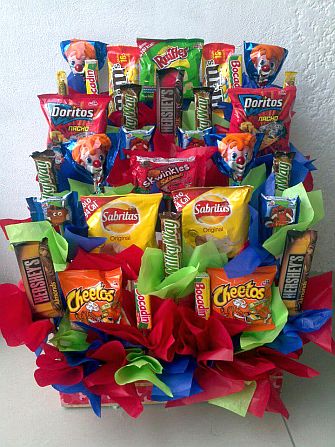Companies trying to launch healthier snack options in Mexico, where the government has been cracking down on junk food through taxes and advertising restrictions, find that the products are often a tough sell.
Carmela Rivero, vice president of product research and development at PepsiCo's Mexican operation, recounted tales of several recent misfires at an industry conference this week.
One product was a baked snack called Nutritas that involved more than $30 million of technology to cook fresh vegetables. That didn’t take off.
Nutritas was one of 42 products the company designed with school children in mind. Practically all of the products in the school line were returned unsold to the company, according to Rivero.
"The bar for acceptance by the consumer is very high," she said.
But a Quaker cookie line packed with oatmeal and fiber that began rolling out in 2009 has been such a big hit in Mexico, that PepsiCo exported it to several countries in Asia and South America.
Mexico is the world’s ninth biggest market for packaged food. But, seven out of 10 adults in the country and a third of children are overweight.
 |
Mexico slapped a tax on full-calorie sodas, teas, and juices in an effort to trim waistlines and prevent Type 2 diabetes. Products like PepsiCo’s Sabritas potato chips were also hit with the 8 percent levy on calorie-dense packaged foods, with the aim of discouraging consumption.
PepsiCo is determined to create healthy alternatives. "We want to be part of the solution," said Ms. Rivero.
In Mexico, the company’s third-biggest market by revenue, US-based PepsiCo said in January it would invest $5 billion over five years, including a baked goods development center in Monterrey.
Companies such as Danone, a French, multinational food-products corporation, also say they are working to reformulate products to offer Mexicans less calories, salt, and sugar in their snacks.
"However, light products are generally shunned in Mexico," said José Daniel Pérez, an account director at consumer research firm Kantar Worldpanel.
"Four out of five Mexicans won’t buy a product labeled as light," said Mr. Pérez, "because they don’t like the flavor. They also are skeptical that products claiming to be healthy will actually benefit their health."
"The light category is very underdeveloped compared with other countries. There’s a negative connotation for light here in Mexico," he said, offering Chile as an example of a country where consumers embrace low-calorie and diet products.
Early results show that Mexico’s soft-drink tax may have curbed soda consumption this year, with the country’s biggest bottler, Coca-Cola Femsa, reporting a 6.4 percent annual slide in carbonated beverage sales in its Mexican territories for the first half of 2014.
PepsiCo doesn’t break out its Mexico revenue, but Kantar research shows little impact on sales from the tax on snack food in Mexico.
Soft drink industry executives say that soda drinkers in Mexico are merely trading down to cheaper brands, or spending less on personal care items like toilet paper to offset the higher price they pay for soda.
By some accounts, Mexico is the world’s biggest per capita consumer of soda.
Nutritionist and public health advocate Marion Nestle, speaking at the same conference as Ms. Rivero and Mr. Pérez, advised food companies to gradually reduce their sugar and salt content so that consumers don’t perceive the change.
"The food industry has a choice. It can see obesity as a threat or as a business opportunity. For many food companies it appears much more as a threat," she said.
Original Story


